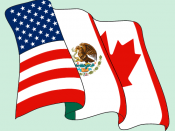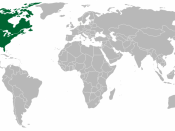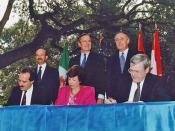Opponents of free trade often claim that trade with other countries destroys domestic jobs. For example, according to them, free trade in automobiles industry would cause the price of automobiles to fall. That would reduce the quantity produced by the domestic automobile companies. As a result, since the labor demand curve is a derived demand curve, the reduction in the price of automobiles would reduce the demand for labor in the car industry. At the end some car workers would loose their jobs and wages would go down. If the story had ended like this, the opponents of free trade would have been correct in the above analysis. However, as we have known from earlier discussions partial equilibrium analysis focusing only one market is not enough to derive realistic conclusion about real life situations. We have to look at the other dimension of the free trade, which is job creation side.
Yes, free trade creates jobs at the same time it destroys them. Therefore, a rational analyst in judging merits and perils of free trade should do its analysis at the margin. That is to say, it should apply Principle #3 of Gregory Mankiw, stating, "rational people think at the margin", to his or her analysis. When the country under consideration buys automobiles from the rest of the world, the rest of the world obtains funds in terms of increasing income to buy other goods from the country. The automobile workers having lost their jobs because of the trade would move from the automobile industry to those other industries in which the country under consideration has a comparative advantage, that is, it has produce them by incurring lower opportunity costs relative to the rest of the world. This transition might not be easy and even might create structural unemployment in...


